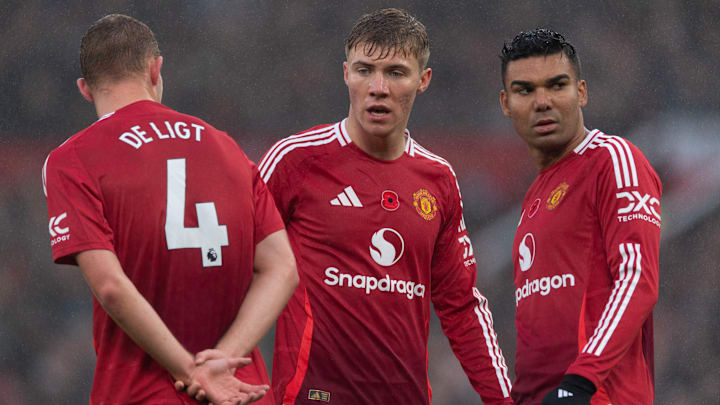If there's one competition where Manchester United can proudly claim first place, it's spending. According to a recent report by the CIES Football Observatory, the Red Devils top the global rankings for net spending in soccer over the past decade. It's an eye-popping figure, but it also raises questions about efficiency, strategy, and on-field returns. After all, what does it even mean to invest more than £1.08 billion and fail to establish dominance?
Follow Playing for 90 on X (Twitter).
The Numbers Don't Lie
Since 2015, Manchester United has shelled out astronomical sums on signings. Just last summer, they spent over £200 million to bring players like Matthijs de Ligt, Leny Yoro, Manuel Ugarte, and Joshua Zirkzee to Old Trafford. The previous summer, high-profile names like Antony and Mason Mount joined the squad, with another £168 million spent. Yet, glaringly obvious is how these investments have failed to translate onto the pitch.
Despite all the financial outbursts, the Red Devils are anything but a dominant force in European or even Premier League soccer. While rivals such as Manchester City have managed to convert million-pound investments into sustained success, United seems stuck in some sort of heavy spending-disappointing returns cycle.
The Premier League: A Billionaire's Playground
It's not a surprise to see Premier League clubs dominating the rankings of the biggest spenders. According to the same study, the English top flight has spent a staggering £19.1 billion since 2015. The financial heft of these teams is second to none, but as United's case shows, money doesn't always translate into trophies.
Chelsea, for instance, also ranks among the top spenders. Under Todd Boehly’s leadership, the Blues have ramped up their investments in recent years, but the results remain hit-or-miss. Meanwhile, Arsenal and Tottenham, spending £661 million and £591 million respectively, continue to chase the elusive silverware. In contrast, Manchester City, with a slightly lower net spend of £585 million, has clinched the Premier League title six times in the past seven seasons.
Efficiency versus Extravagance
City juxtaposed with United points to perhaps one of the biggest lessons of modern soccer: big spending alone is not enough. Efficiency in deploying those resources separates champions from also-rans. Led by Pep Guardiola, Manchester City has fostered a culture of excellence within strategic planning, well-defined tactics, and spot-on signings.
United, while outspending a majority of their peers, fail to develop a coherent identity. The big-money signings of Antony and Mount are about instant fixes; it hardly ever really works because there is no one clear project to speak of. The lack of major silverware over the last couple of years really justifies this reason as to why United needs to seriously revisit its investment strategy.
The European Context
Beyond England, there are several clubs that easily stand out for their spending sprees. For instance, PSG has invested close to £825 million over the last decade. With star signings such as Neymar and Messi, the Parisians aimed to dominate not only French soccer but finally conquer the Champions League. However, just like United, PSG struggles in turning a collection of stars into a cohesive, winning team.
Meanwhile, other giants like Barcelona and Juventus feature on the list but face different challenges. Barcelona has spent £500 million and faces financial restrictions which limit their market activity. Juventus, in the light of several years of dominance in Serie A, is rebuilding after administrative scandals and subpar results.
The Saudi Influence
Another notable presence in the rankings is Al-Hilal, with the Saudi financial rising star in soccer. With a net spend of £462 million, the club is to position as a forthcoming power globally with state-backed investments. While still a long way from challenging Europe's elite on the pitch, Al-Hilal's ranking is symbolic of the shifting finance in the sport.
What's Next?
The study by CIES not only indicates the big spenders but also underlines something more significant in terms of change in modern soccer: money is important, no doubt, but it doesn't ensure success all by itself. What makes the difference for top clubs is the capacity for planning, integrating talent, and building structures that are sustainable.
For Manchester United, leading the spending charts must be a call to conscience. Not in how much they spend is the greatness of the club measured, but in the legacy and trophies left. Without that, all these investments run the risk of being no more than data points in some future study-a reminder that money without purpose is like a shot that never finds the net.
